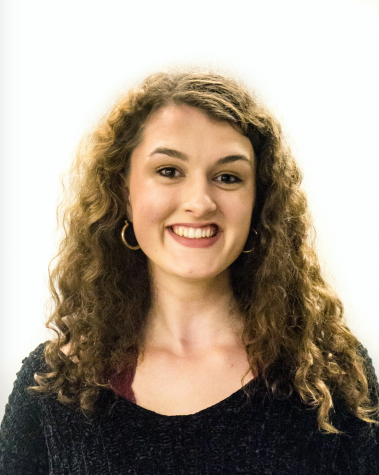This week’s MCSG meeting began with a presentation from James Cannon ’20, Maya Wills ’21 and Alyssa Bulatek ’20 on their new student group: High-Power Rocketry at Macalester, or “Mac Rocketry.”
Mac Rocketry formed after the physics department sent out an email in the spring of 2017 to its majors asking if there would be interest in teleconference-style video lessons on rocket building hosted by the University of Minnesota.
Cannon and Bulatek both expressed their interest and attended a public launch put on by the Minnesota chapter of the National Tripoli Rocket Club. Cannon believes that Mac Rocketry addresses a need on campus that hasn’t been met by existing groups: the opportunity to build and fly rockets that students can make themselves.
“We provide a space for something that doesn’t get a lot of space on campus and that is a space for students who want to use their hands,” Cannon said. “Macalester is a very academic institution, but there aren’t a lot of opportunities to use a drill and make something and see it as a final product.”
Cannon pointed out that engineering as a subject is interdisciplinary. Mac Rocketry, comprised of 25 student members and advised by physics professor Tonnis ter Veldhuis, represents nine majors and numerous minors, including theatre, data science and neuroscience.
“We see a lot of student support for what’s going on,” Cannon said, “and we’d like to organize an org with MCSG to take better hold of who we are, create a space for what we are doing and gain some financial resources.”
Mac Rocketry has already competed in the Minnesota Space Grant Consortium (MnSGC) High Power Rocketry competition, a contest open to colleges across the nation. Of the 18 schools competing, Macalester placed ninth.
Since forming, Mac Rocketry has relied on grant money from the physics department – which received money from the Minnesota Space Grant Consortium last year.
On Tuesday, Cannon stated that the club would likely need $500 per semester from MCSG to fund the procurement of materials and safety equipment that needs to be replenished regularly. It also wants a stipend to make long-term purchases, such as more accurate measuring tools and safety equipment.
In addition to financial support, a charter would allow Mac Rocketry to advertise on the Macalester campus more easily and participate in the student organization fair. The group has big plans for the year.
”We’re looking to start designing and building a rocket that will go faster than the speed of sound,” Cannon said, “which is incredibly exciting.”
Although they are only entering Midwestern competitions this year, Mac Rocketry has big plans for the future.
“Further into the future,” Cannon said, “I have my eyes set on the Spaceport America Cup and the Intercollegiate Rocket Engineering Competition (IREC) for the 2019-2020 school year – if we have the student support to facilitate that.” MCSG will vote on the organization’s charter next Tuesday.






Joanne Roberts • Sep 11, 2019 at 12:56 pm
Just desire to say your article is as surprising. The clarity for your post is simply excellent and i can suppose you are knowledgeable on this subject. Fine along with your permission let me to snatch your RSS feed to stay updated with approaching post. Thanks 1,000,000 and please carry on the enjoyable work.
William Morrison • Sep 10, 2019 at 7:21 am
Great post. I was checking continuously this blog and I am impressed! Extremely useful information particularly the last part 🙂 I care for such info much. I was seeking this particular info for a very long time. Thank you and best of luck.
Bernadette Vaughan • Sep 9, 2019 at 11:35 am
I think a visualized display can be enhanced then simply a easy text, if things are defined in images one can easily understand these.